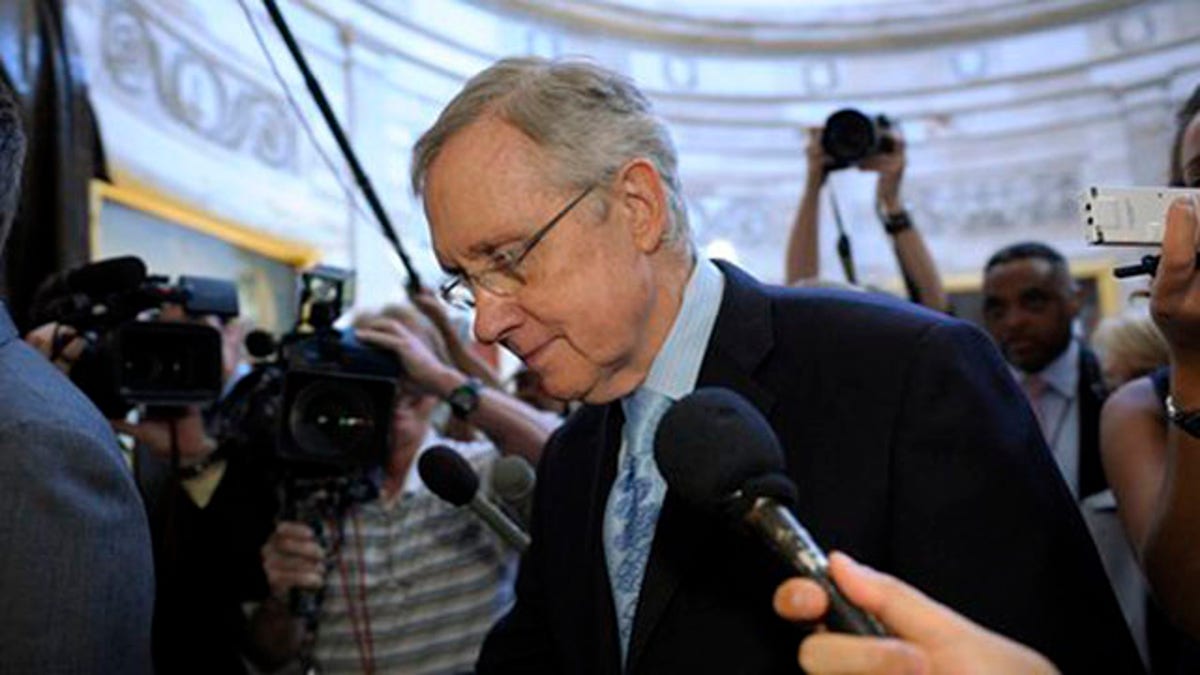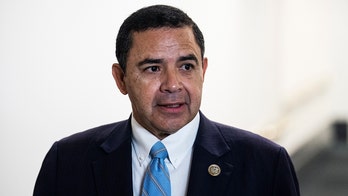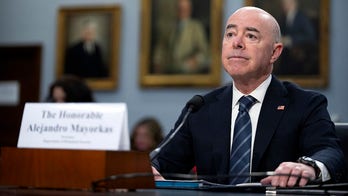
Senate Majority Leader Harry Reid is followed by reporters as he walks through the Capitol Rotunda on Capitol Hill July 31. (AP)
The brutal battle to pass the debt-limit compromise this week may end up looking like the easy part.
During the next two weeks, the top four leaders of Congress will select three members each for a new super committee with the huge job of identifying, by Thanksgiving, roughly $1.5 trillion in deficit reduction over 10 years. With six Democrats and six Republicans to be appointed, the group already promises to be split on shrinking the debt by tax increases or spending cuts even before its members have been named.
Senate Majority Leader Harry Reid, D-Nev., who will select three Democratic senators to serve on the committee, says members must possess a variety of traits.
“It's extremely important that I pick people who are willing to make hard choices but are not locked in," Reid told reporters.
But there will be outside pressure from lobbyists and even party elders in the upcoming negotiations, just as there were in those leading to the debt deal. House Minority Leader Nancy Pelosi, D-Calif., had her priorities during the debt debate and will have them in round two.
"We did protect the benefits, the Social Security, Medicare and Medicaid benefits. That is a priority for us,” Pelosi said at a press conference. “I know that whoever's at that table will be someone who will fight to protect those benefits."
Protecting turf is one reason why Sen. Orrin Hatch, R-Utah, is concerned about the super committee.
"I think it's going to be very difficult for six Democrats and six Republicans to arrive at solutions here, but I think they have to,” Hatch told Fox News. “Because if they don't then this automatic trigger happens."
That trigger, which commences across-the-board spending cuts if the committee fails to meet its goals, makes this different from your typical Washington blue-ribbon panel. Whatever comes out of this super committee has to pass Congress by December 23 to keep the trigger from kicking in. President Obama doesn’t have a seat at the table, but the administration won’t be afraid to weigh in.
"We are not shy about making our opinion known about the kind of seriousness that we think the members of this committee should approach the task,” White House Press Secretary Jay Carney said. “And I'm sure we'll continue to express that opinion."
There are also risks for conservatives and others strong on national security. It could be slashed by as much as $600 billion if the trigger is pulled.
"God forbid the special committee doesn't make a recommendation that's accepted by Congress,” said Sen. Joe Lieberman, I-Conn., who serves on the Homeland Security and Armed Services committees. “The president is going to have to make recommendations of cuts in spending on defense that will decimate our national security."
There will also be pressure on Democratic committee members because -- despite efforts to shield it -- at least 15 provisions of the president’s health care law would be on the chopping block if the committee fails to decide on cuts necessary to avoid the triggers.
"I think they will be mature enough that they will act in the best interests of the country and also frankly, they're not going to want to fail for their own reputations," said Sen. John McCain, R-Ariz.




